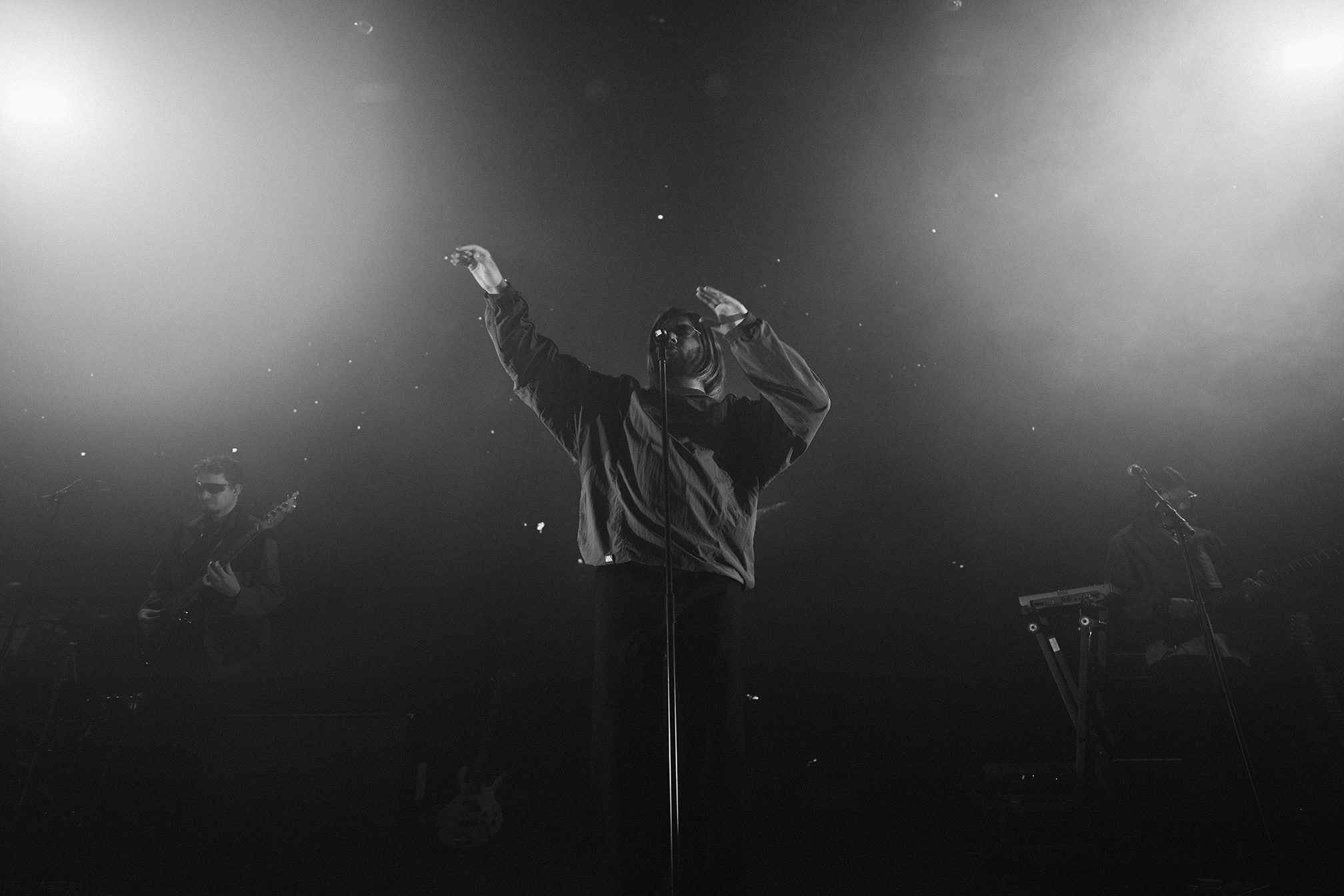 Features
Features
Review: Jai Paul's London live debut was a delirious, heart-warming homecoming
The day ones were out in force as the generational talent brought his long-awaited live show to London for the first time. Dhruva Balram reports
Hundreds of people scream in unison as the first delicate chords of ‘Jasmine’ are played. Phones are whipped out and held high, capturing the moment enigmatic British-Indian artist Jai Paul sings the opening lines “Are you with me, Jasmine? / Can you let me in? / Would you knock me over / Like a bottle of gin?”. It’s been a decade since the world first heard the song. Now, people are hearing it live for the first time as kinetic strobes are shot in every direction; the audience is arrested at the moment as electric mountains are projected onto the visuals. This is history in the making, the highlight and apex of a moment many never thought would come.
As ‘Jasmine’ fades away, a voice softly shimmers singing “Don’t fuck with me / don’t fuck with me”, eliciting a temperature-rising response from the audience. Jai Paul’s falsetto vocals hover lightly over the big drum claps and futuristic synth riffs of ‘BTSTU’ as he sings in the chorus, “I know I’ve been gone a long time, but / I’m back and I want what is mine”, an apt descriptor for a man who changed the sound of pop before disappearing for a decade.
The instruments fall away to reveal his voice: hushed, anxious as he says quietly into the mic “don’t try and fuck me about”, drowned out by the crowd singing along. And then, he laughs, a moment of recognition, of understanding his place within the context of musical history and how this show, of all the ones he has played recently, is the most important: it’s his homecoming, his chance to be appreciated and loved by the day ones. A sax solo plays at the end of ‘BTSTU’ and he leans back, arms spread, taking in the adulation to understand that he’s truly back, to be witnessed amongst the pantheon of greats.
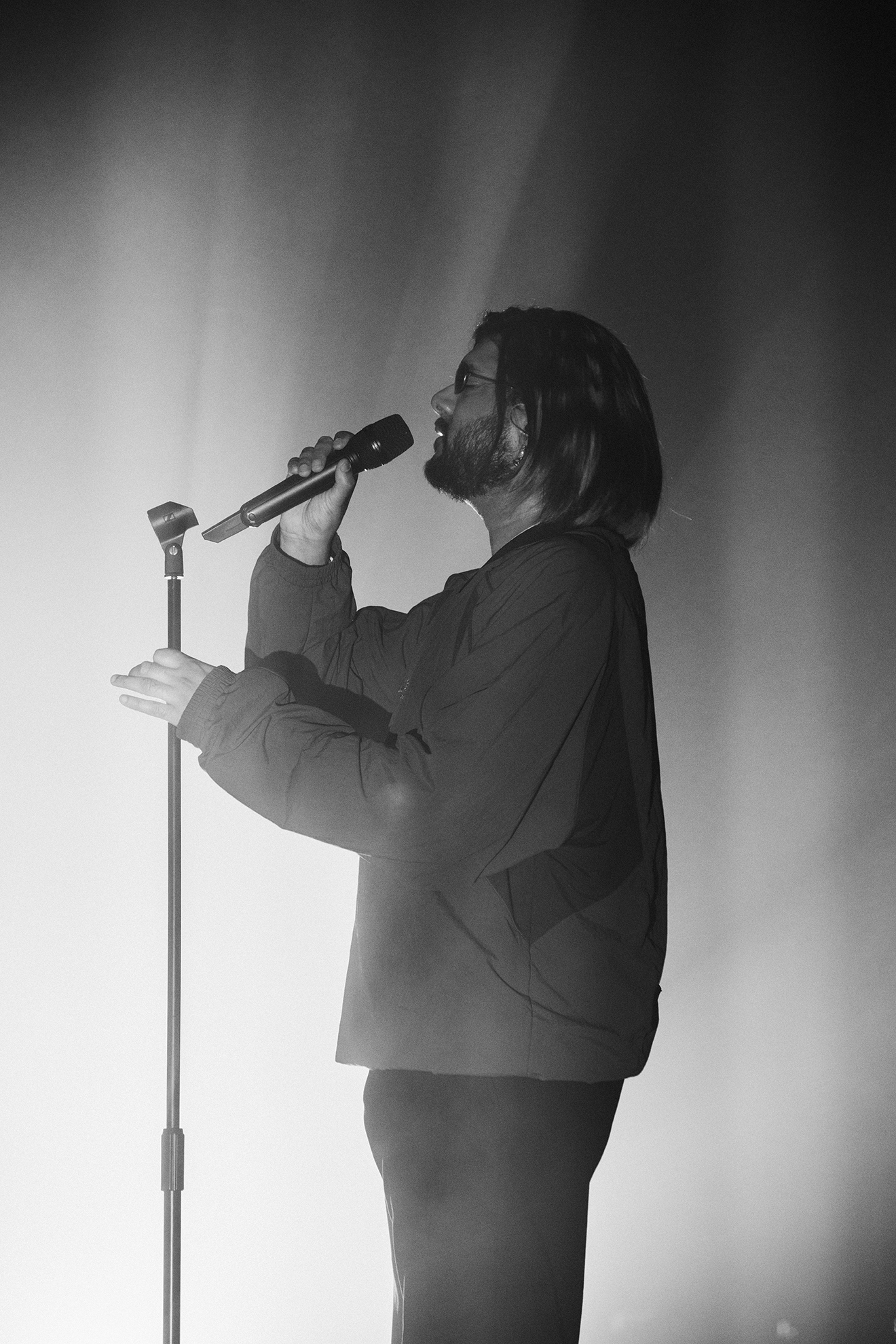
10 years ago, in April 2013, a 16-track collection of songs made its way around the internet. Some were fully formed; others, barely a minute long, felt unfinished, yet online fanfare recognised the potential within it: it was a stroke of genius from a generational talent. Underpinned by an infectious pop-leaning sensibility, the production refused to be boxed into a genre. Those 16 tracks appeared on Bandcamp for sale, their cover featuring a photo of the artist Jai Paul, but, within two days, they were taken down.
During the subsequent years, the artist remained silent while rumours swirled about the enigmatic British-Indian producer from North London. Niche corners of the internet were awash with rumours of Jai Paul attending parties. Fans were posting stories of him eating dinner at KFC in Rayners Lane or meeting him on a train. Yet, his music and his life remained shrouded in mystery.
Jai Paul became an object of desire, an encapsulation of the internet’s obsession with celebrities. His story is a cautionary tale of fandom, of projecting a fantasy onto someone who is but a mere mortal. Questions arose of how much we needed to know about him vs. how we should just be grateful to let the music speak for itself. The media and fans were obsessed with his every move: a sighting of him in a property developer magazine was covered everywhere. The subreddit dedicated to the artist, r/JaiPaul, at one time, possessed more conspiracy theories than facts.
After releasing two new songs - ‘He’ and ‘Do You Love Her Now’ - alongside a statement in 2019 citing the reasons for his absence, Paul disappeared again. He didn’t owe us anything. Despite releasing a project that reshaped the 2010s and inadvertently moulding pop to his sound, fans, the media and critics wanted more. Eventually, they got it.
When Californian festival Coachella announced the line-up for their 2023 edition, despite every other headliner, only one name mattered to many: Jai Paul. It was his first live performance. Ever. It was also his first performance ever. And it took place 10 years to the day the leaks occurred back in 2013. Even Kaytranada tweeted “forget about me performing, i’m going to see Jai Paul”.
His mysticism grew. There was a palpable tension as the minutes to his set counted down. r/jaipaul could not believe what they were about to witness. TikToks and Instagram stories and cut-up YouTube videos captured the grainy, awkward Coachella performances. The grandiosity of the large-scale festival seemed to drown out the intimacy of his music. His vocals appeared to go missing amidst the tens of thousands there to witness him perform. The second weekend brought out a better performance, yet it still felt too detached. In between those performances, four new shows were announced: two in New York City, and two in London. The ones in NYC were immediately more intimate than Coachella, more pronounced as if the weight of delivering a performance had disappeared from him.
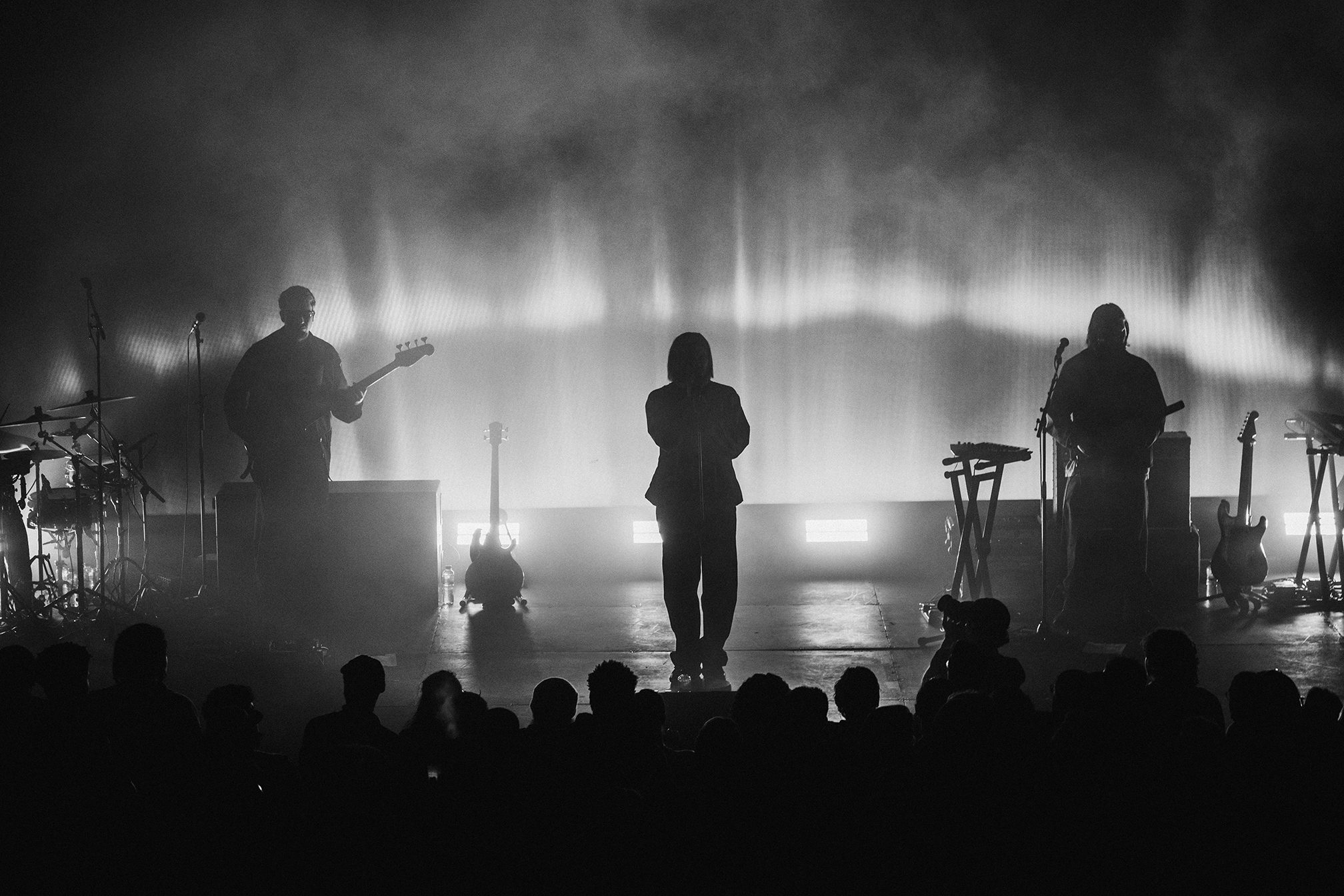
In London, on the first of his two nights, the queues at the mezzanine for the merchandise snake around the corner as the venue is nearly full with an hour until he enters the stage. The audience, shrouded in a blue, metallic light, is treated to Prince and Rick James over the speakers, but they fall silent every time the song stops on the playlist, a nervous expectancy falling over the crowd. A few visuals of rocks and red lights tease the audience.
Eventually, with no fanfare, the band walk onto the stage. Paul’s band features his brother, A.K. Paul on guitar, who also acts as co-head of the Paul Institute, a venture they started together. London drummer Isaac Kizito, bassist Rocco Palladino and keyboardist Fabiana Palladino complete the tight-knit, well-rehearsed grouo. Fabiana, a Paul Institute signee, also opens the show.
The snares are hit and huge LCD screens burst into life. The band launched into a deep cut from the discography: ‘Higher Res’ a 2012 collaboration with Big Boi and Little Dragon. Then, Jai Paul walks on stage wearing a blue jumper, Adidas bottoms and sunglasses. He has the confidence of a man who has just played back-to-back weekends at one of the world’s biggest festivals in Coachella. There’s a comfort here that he didn’t seem to possess before as if he’s back where he’s supposed to be. His charming ‘what you saying?’, the first words many are hearing from him live for the first time are drowned by a sea of ecstatic noise. He dives into ‘He’, his voice a tad bit muffled and hushed; there’s a noticeable shake as if he’s trying to ground himself again.
It’s on the third song, ‘100,000’ that we’re reminded where we are and who we’re seeing as the arresting visuals are displayed: it’s like you’re spelunking down a cave in a time warp, listening to Paul sing “I've spent a hundred thousand light years on this”, transporting you to a different era. The crowd is (surprisingly) head banging and it feels like we’re inside a punk concert. The energy is palpable, the buzz of excitement surging through our veins as everyone realises at once who and what we’re witnessing. The response at the end of the song is deafening.
Here, Jai seems to take a break to acknowledge his whereabouts and the crowd. After the excitement of ‘100,000’, the set does feel a bit meandering with ‘So Long’ and ‘Chix’, but the nostalgic elements aren’t deeply bedded into the songs to evoke a feeling others do throughout the evening. ’So Long’, a new song which sounds like it was made in the ‘80s is the first example of Paul holding a high note, something he comes back to often throughout the night, showcasing that he can sing.
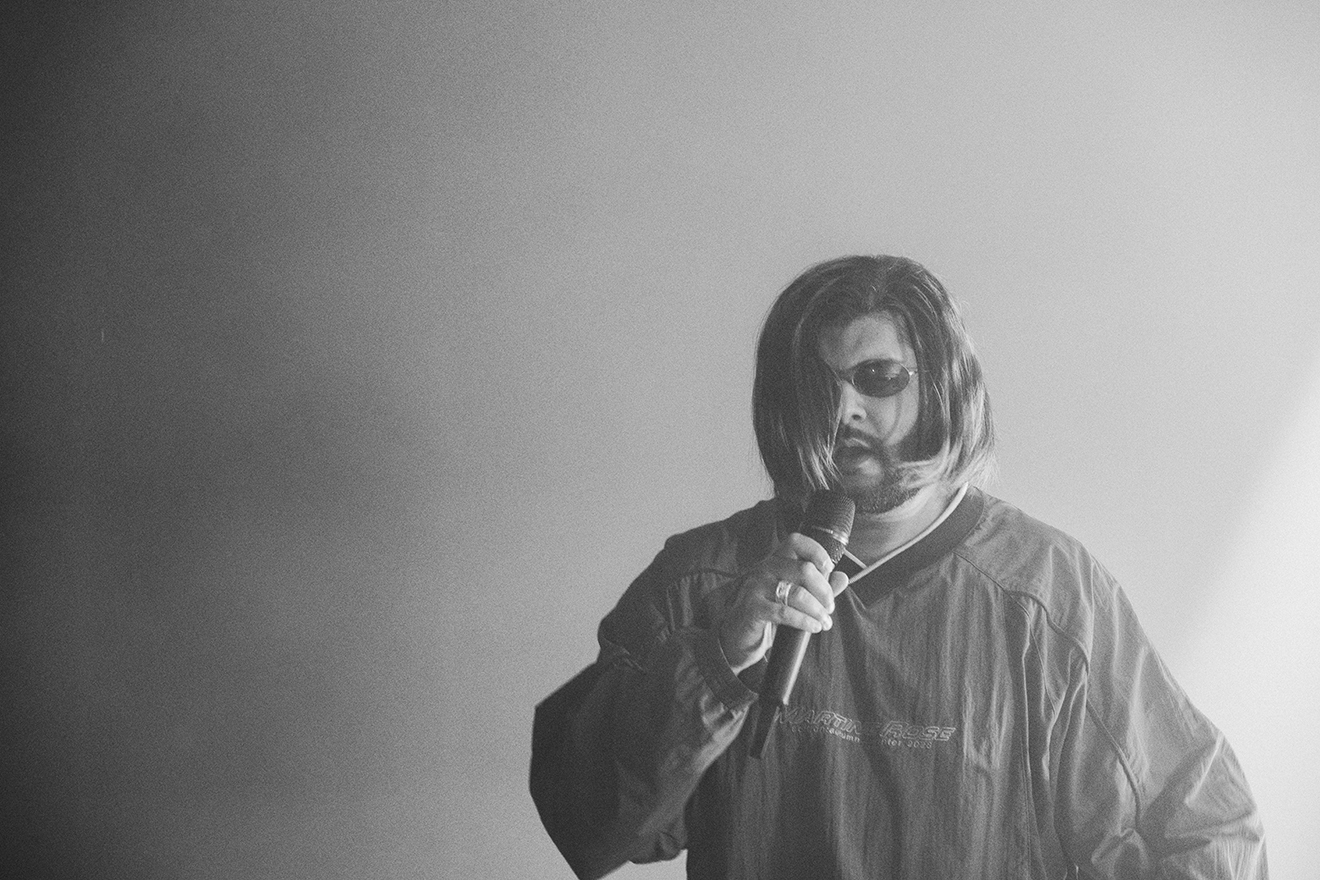
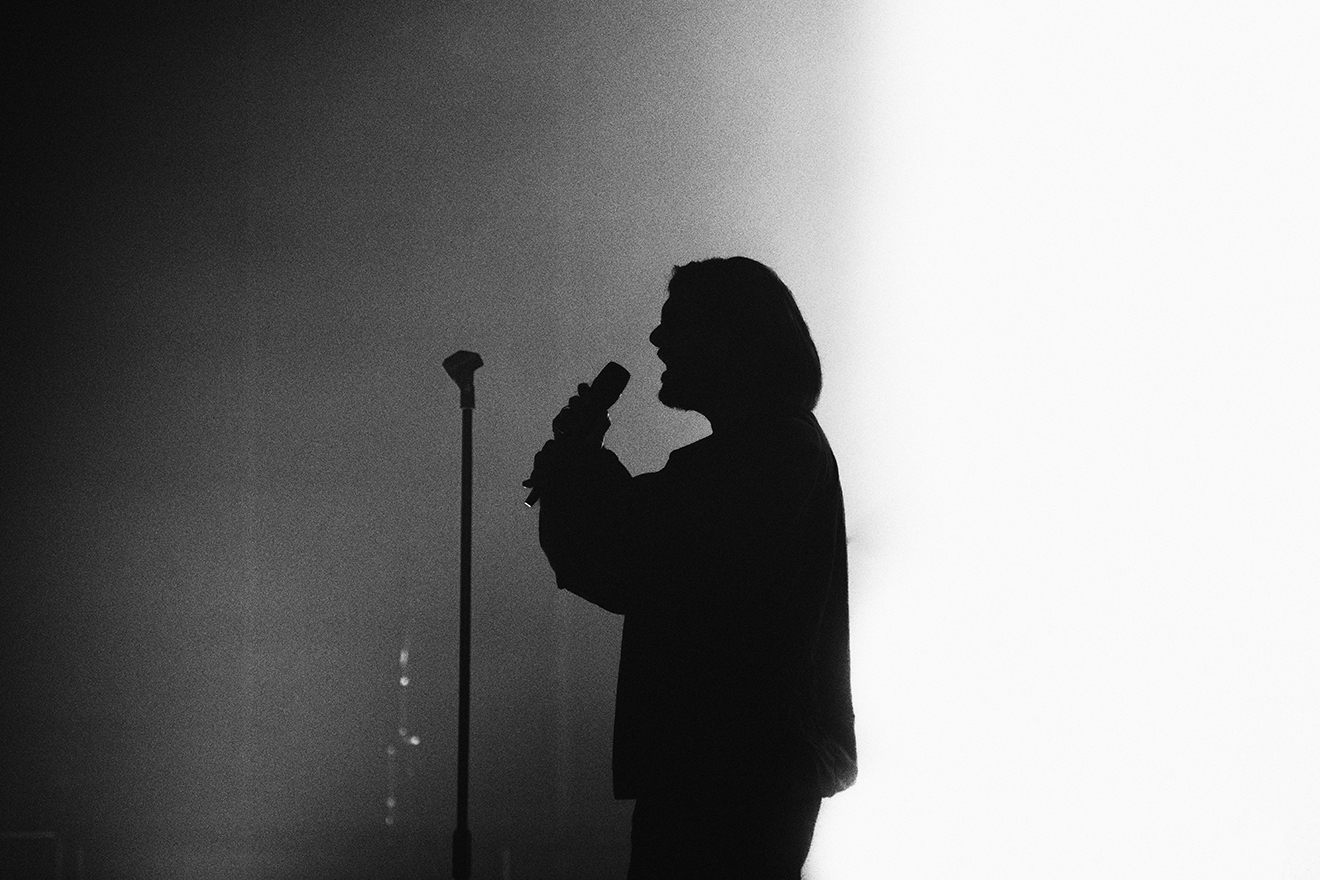
As ‘All Night’ and ‘Zion Wolf Theme’ are played, the intention of the night is evident: Jai Paul has prioritised intention over spectacle, purpose over grandiose. The stage at HERE @ Outernet is more suitable for him and his music. Throughout the evening, the songs feel complete, how they’re meant to sound. When he decides to “do something fun” and covers Gary Newman’s ‘Cars’, which is a strange left turn, it elicits a big response. He busts out the tambourine and seems to be having actual fun? There may be sly reggae riffs under certain tunes which don’t necessarily work and some songs don’t replicate themselves well in a live performance, but, ultimately, none of that matters. His vocals may also be sometimes muffled, but to see someone who has discussed the struggles of their mental health having actual fun is endearing and heart-warming.
There’s charisma to his performance here. ‘Genevieve’, in particular, gets a huge sing-along where he doesn’t need to sing in parts, orchestrating the crowd to shout “That's why I'm begging you, Genevieve / Why don't you come back to me? / Why don't you even chat to me? / Let's go back to how we used to be, yeah”
As the back-to-back of ‘Jasmine’ and ‘BTSTU’ play, a valve that has been simmering for a decade is released. The audience seems to finally let their inhibitions go, dancing and moshing and living in the ecstasy of the moment. It’s an adrenaline rush of memories and endorphins taking us back to a simpler time when we weren’t living in complete anxiety for our futures, for the climate.
A pulsing tabla plays, evoking the final call and response from the crowd for the night. ‘Str8 Outta Mumbai’ is a propulsive tune that feels timeless, like a stepping stone into the future whenever and wherever you hear it. There’s a countdown amongst us in the crowd too when the sample of ‘Bala Main Bairagan Hoongi’ by Indian playback singer Vani Jairam from Ravi Shankar’s soundtrack for the 1979 Bollywood film Meera starts playing. The room loses its absolute shit.
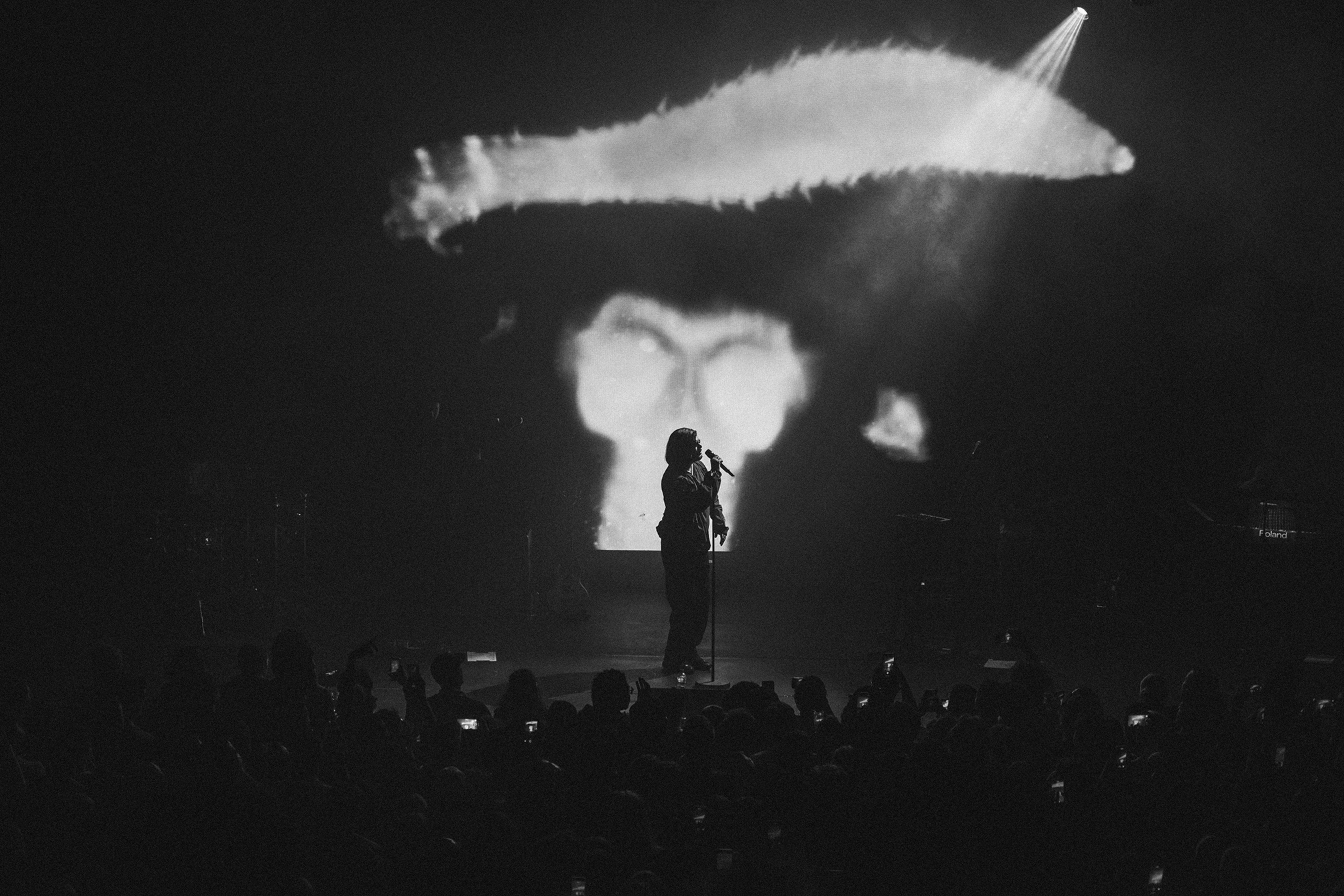
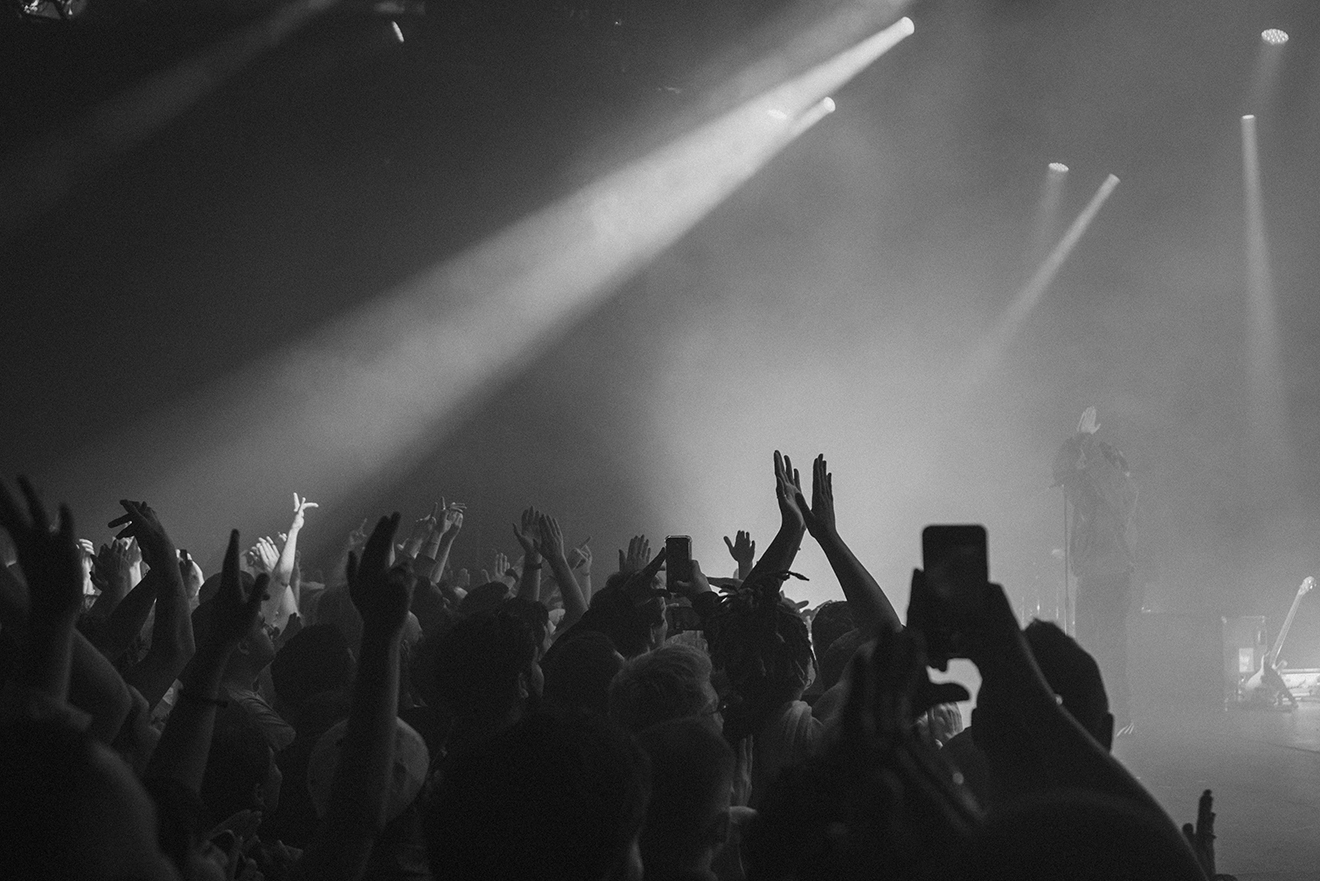
It’s for moments like this, the pure joy and ecstasy that music gives us for which we all gather. Capturing those moments is impossible; it has to be lived: a sea of people at once engaging with a 30-second bar that forever changed the way music was conceived, a 30-second bar that introduced us to Jai Paul and went on to influence dozens of producers and arts, a 30-second bar that I will play on loop in my head for the rest of time because, at that moment, nothing else mattered than allowing the bass to course through my veins, forcing me to jump up and down in pure delirium.
The crowd sings along in Hindi. Jai Paul is dancing. He’s having fun! Like, actual fucking fun! The last chord plays and the song finishes. Jai puts his hands in the air, a prayer to the crowd. He’s grinning, it’s an irrepressible smile. A small voice says “my home city” into the mic and the band walks off to rapturous applause after a tight 50-minute set. A few weak cries of “one more song” quickly fade away as the audience is aware that we should be grateful having watched a generational talent come into his own.
Dhruva Balram is a freelance writer and critic, follow him on Twitter
Aiyush Pachnanda is a freelance photographer, follow him on Instagram


